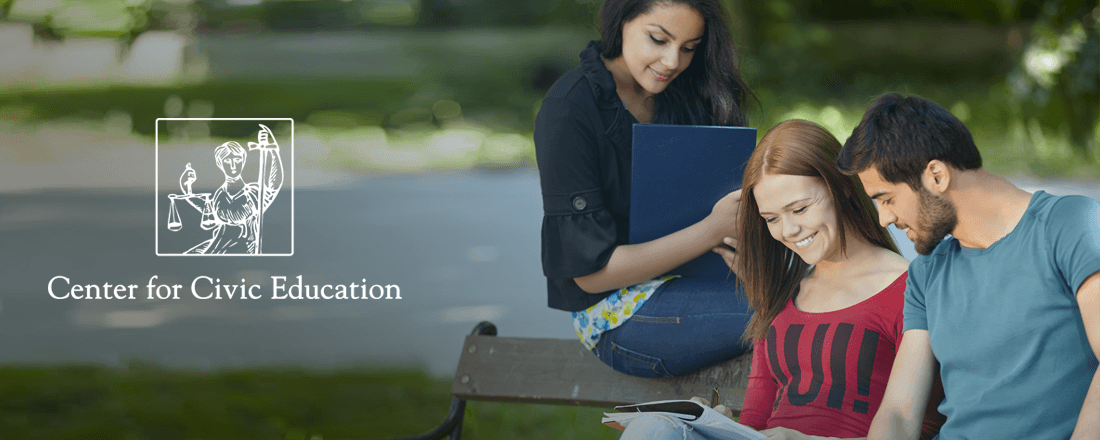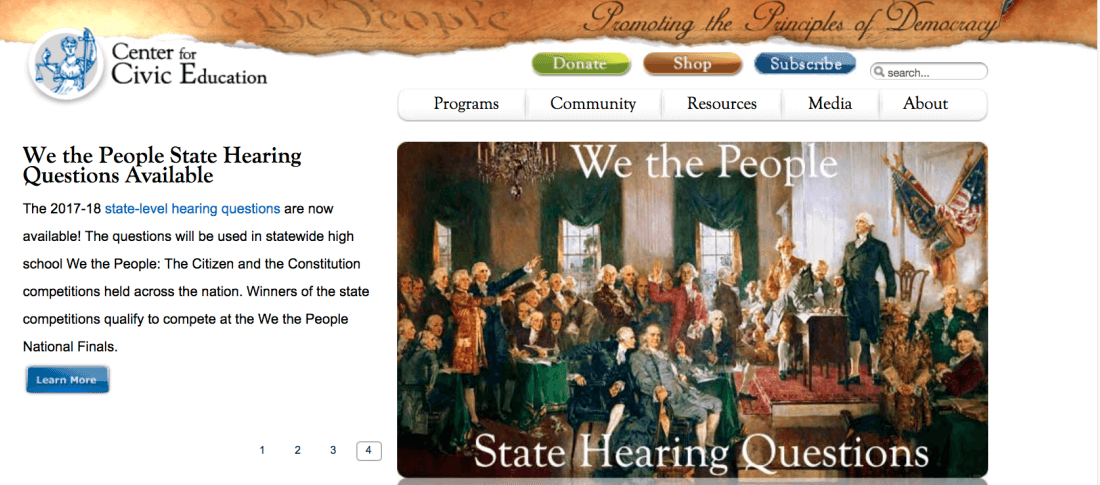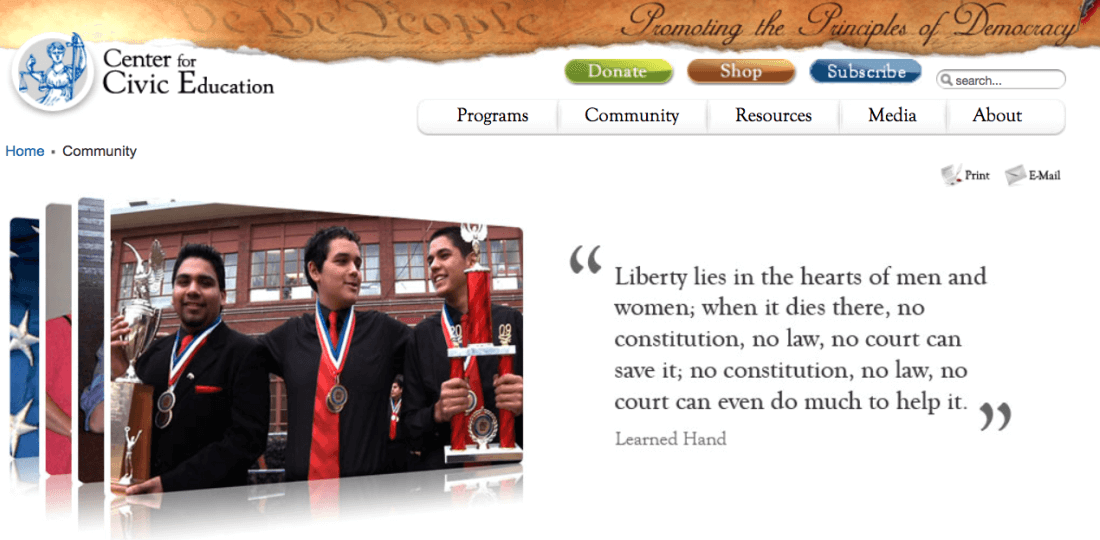
The Center for Civic Education is doing its best to better inform in an array of categories, notably politics and the history of civic duty. The center’s primary purpose is to develop, implement and evaluate professional development and classroom curricular programs that foster civic competence, responsibility and engagement.
Charles N. Quigley is the center’s executive director and spoke with RewardExpert about why a better informed populace creates a more hopeful country.
Enacted to Combat a Lack of Awareness
The center started in 1965 as the Committee on Civic Education at the University of California Los Angeles, in response to a low level of understanding and support for decisions of the Warren Court that required state and local governments to comply with federal standards regarding the due process protections of the Bill of Rights.

“Research conducted at the time revealed widespread public ignorance, not only of the Bill of Rights, but of our entire constitutional system, its history and its structure and functions,” Quigly said. “Added to these findings were studies that showed that American prisoners of war in the Korean conflict were easily indoctrinated by their Communist captors, apparently because they knew so little about their own system of government.”
The committee was initiated by the Deans of the Schools of Education and Law and chairman of the Department of Political Science, and it included faculty in disciplines like philosophy, political psychology, sociology and history. In 1981 it was established as an independent nonprofit.
“(The center’s programs are) guided by a profound understanding of and reasoned commitment to the fundamental principles and values of liberal, constitutional democracy,” said Quigley, who has directed the center since shortly after its inception. “The center’s domestic programs are implemented by a collegial network of associates in every state. Its international programs are implemented in 83 other nations, most of which are emerging democracies.”
Affecting the Lives of Millions
Quigley said the university origin set the course for the collaborative development and implementation of programs based on sound interdisciplinary scholarships, leading to the development of nonpartisan programs that have been lauded by both major political parties in U.S. Congress.

The center has reached more than 30 million U.S. participants.
“The center’s programs are the most thoroughly researched and validated in the nation, meeting the highest research standards required by the federal government,” he noted. “Finally, the Center has developed the National Standards for Civics and Government and other foundational curricular frameworks in conjunction with scholars and educators from around the country and the world.”
A Better Understanding
Young people who want to gain a better understanding of civics can read books, like “We the People: The Citizen and the Constitution,” or taking advantage of print or electronic resources — such of which are free on the center’s website.
Research-based findings are lending themselves to the center’s mission.
“The Center is developing new programs targeted at needs identified for which there are no currently available programs, or needs that are not treated as rigorously and systematically as they should be,” he said. “Foremost among these programs is one for teachers and students focusing upon the strengths and weakness of the American political system and means of enhancing the strengths and diminishing the weaknesses.”
